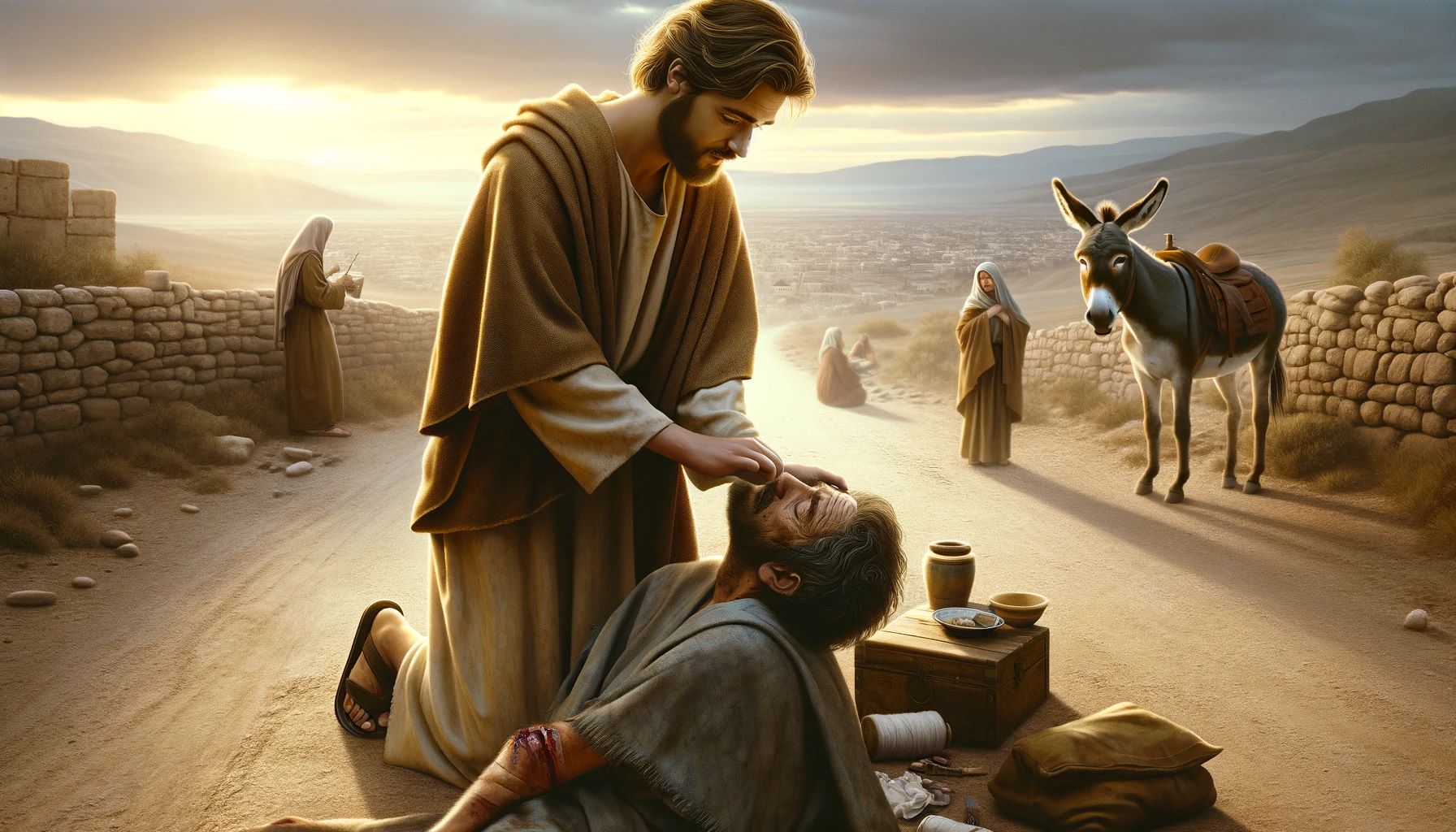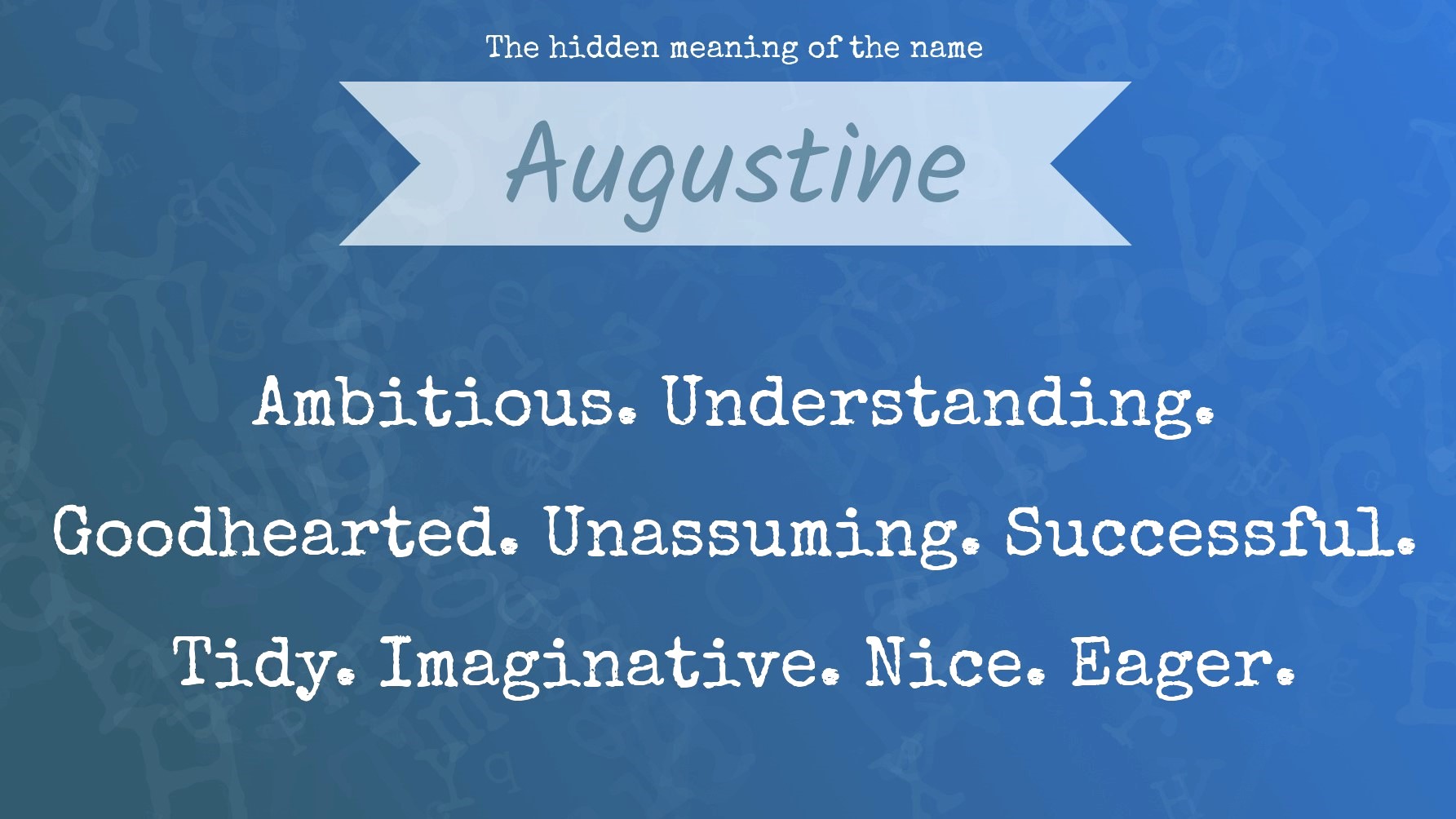Home>Christian Resources>What Does It Mean To Trust God Wholeheartedly?


Christian Resources
What Does It Mean To Trust God Wholeheartedly?
Modified: January 9, 2024
Peter Smith, Editorial Director at Christian.net, combines deep insights into faith, politics, and culture to lead content creation that resonates widely. Awarded for his contributions to religious discourse, he previously headed a major organization for religious communicators, enhancing dialogue on faith's societal impacts.
What does it mean to trust God? Putting our complete confidence in God is never easy but it is necessary. Know how to wholeheartedly trust God.
(Many of the links in this article redirect to a specific reviewed product. Your purchase of these products through affiliate links helps to generate commission for Christian.net, at no extra cost. Learn more)
Trusting God is the only means of living a life in tranquility amid uncertainties. If truth be told, it is the only way to experience a full life. A lot of things rob us of our joy and peace. For some, it can be their constant worries of the future. Others may be in deep turmoil because of the present dilemma they need to overcome. Some are troubled with mistakes, regrets, and events in the past which have caused them traumatic experiences. Conflicts may vary for each individual, but it all points out our inadequacies. It proves clear our limitations in knowledge, ability, and power. These intruders to our minds and hearts steal our capacity to cherish even the simplest moments of life. We need to trust God to overcome these robbers of joy, peace, and hope.
The key to keeping away these life thieves is to shift our focus from our circumstances to God. Because God alone knows our futures, in Him we can find true assurance. To fully live, we need to learn the habit of trusting God. There are important things Christ’s believer should know to understand what it means to trust God. Putting full confidence in God is what trusting God is all about. When we say “fully”, it means a complete inclusion of everything that we are and anything that we have. It is whole-heartedly. Whole-hearted means a hundred percent of confidence placed in God’s hands. It is undivided. Nothing is left behind.
In spite of these descriptions, it is still hard to tell what it truly means to whole-heartedly trust God. Going into the important matters of confident expectation in God, we find great pictures of what it means to trust God.
Trust God Through Highs And Lows

Probably, among all the characters in the Old Testament, it was Job who showed the best image of trusting God. Job was a wealthy, good man before God permitted Satan to take everything from him. Satan crumpled to dust his wealth, possessions, properties, and even his children. Although the enemy had afflicted Job with pain and hardship, Satan wasn’t satisfied. Satan, determined to show any fake faith of Job, tormented him in all ways. The evil proposals of Satan however were of no use. Job remained faithful to God in every affliction. During Job’s high stature when he was considered as the greatest of all the people of the east, he was blameless and upright before God (Job 1:1-3). When he was at his lowest and nothing good was left to him, he remained faithful to God.
This character of Job is what best describes what it means to trust God. In any circumstance, through our darkest and happiest moments, we are to trust God. Whatever we have; wherever we are, our response to God permitting things to happen and not happen in our life is to trust Him. Why? Because in the end, like Job receiving twice as much as he had before as God restores Him, God will also restore us to life beyond the mind’s eye.
The Lordship and kindness of Christ are not dependent on man’s circumstances. Through the good times and bad, He is God. The Lord knows Job very well. He knew Job will be able to overcome whatever Satan will bring him. Like Job, He knew us very well. God gives only what we can handle both in good terms like wealth and even on bad such as trials and pain.
Trust God Even When It Doesn’t Make Sense

Job in his confusion on why God allowed bad things to happen to him when he was an upright man tried appealing to God. We often do this. In our pains, we try to question God; what wrong did we do to deserve such agonies. We begin to challenge God’s judgment, thinking that we know better than He. However, we know nothing at all.
The same questions asked by God to Job are what we need to answer if we want to trust God whole-heartedly. Do we in reality know enough? Where were we when God laid the foundation of the earth? (Job 38:4) Do we honestly and truthfully understand everything? Have we comprehended the expanse of the earth? (Job 38:18) Can we send forth lightning? Or are we capable of understanding how everything on earth is functioning? Reading Job 38 and 39, we will be faced, knocked down, with the truth that we hardly had a grasp of anything. We are limited in knowledge, wisdom, and capability. Unless God allows it, we can’t do anything. This is the reason why we don’t need to understand everything to trust God. He doesn’t owe us explanations or reasons, no.
To trust God means to be still and have faith in Him. Many things may not make sense and you will not understand why. Yet, you must believe in and trust God, in His power, and His judgment. This is what it means to wholeheartedly trust God. Trusting God does not require preconditions. Because when we trust Him, we begin to realize that it wasn’t about what we feel, but about what He’s doing. It’s not about what we understand, but about who He is.
Know that He Is In Control

The Lord who created everything is sovereign even if we don’t see it. He is in control even when we can’t feel it. Does the Lordship of God diminish when we start to experience hardships? Undoubtedly, it is not. Is He good only when we experience goodness in life? Does He stop being a merciful and gracious God when we encounter various trials? The answers to these questions are, no. There is a sad reality of a superficial Christianity that we come to God because of what we can get from Him. This is not what it means to trust God. Moreover, this is not what it means to have God in our lives. If this is the way we look at God, why do we still call Him Lord?
Even when the storms are raging and the seas are crashing, God is still in control. He can calm the sea like the accounts in the Gospel (Matthew 8:23-27). The disciples of Jesus were uneased and full of fear when a furious storm swept over their boat while Jesus slept. The disciples woke Jesus perhaps with great panic, “Lord, save us! We’re going to drown!” Jesus got up and asked why they had such little faith before he rebuked the winds and the waves. Then, it was completely calm again.
Sometimes we forget God is with us. We get bothered with the things happening around us so much that we fail to recognize we have a great God who can do anything (Matthew 19:26). Did the disciples really think Jesus would allow their boat to be engulfed by the waters when He was in it? Do we think of the same thing? If God is for us who can be against us (Romans 8:31).
Acknowledge Him In All Your Ways
The wise sayings of Proverbs gave us advice on how to trust God. We need to trust God with all our hearts, minds, and souls (Proverbs 3:5-6); putting our complete confidence in God when we trust Him. We cannot trust God totally if we are still holding things that should already be given to Him. The phrase follows not to lean on our own understanding. This way of life, of putting confidence in ourselves can trap us in our frustrations. The wisdom of the world is foolishness to God (1 Corinthians 3:19). There’s no point in inclining our confidence to our understanding or capacities. Our human nature is imperfect and limited. We can’t do things wise and well on our own.
Furthermore, Proverbs 3:6 says to trust God is to acknowledge Him in all ways. In whatever way it is, big or small; we are to recognize God. We need to recognize God in our lives, in every decision and action we carry out. Remember, unless God will permit we can’t do anything on our own. To trust God means we make Him part of every single thing that we do. There is no exception. In this manner, we develop an intimate relationship with God. The more we come to know God, the better we can put our trust in Him. It is by knowing Him that we discover the amazing characteristics and power of Jesus. To trust God is to submit to Him. The Lord demands that we acknowledge our dependence on Him. As we trust Him, we begin to acknowledge Him.
Let Go And Trust God

Why do men want to pursue battles when they can be free from unnecessary wounds if only they choose to let God take over? The Bible reminds us several times that the battle belongs to the Lord (2 Chronicles 20:15; 1 Samuel 17:47). If God is in control, then we are no longer in control. Excessive worries are sometimes brought by our desire to control things. To trust God demands that we let go of our desire and anxieties. This means that we surrender to God in everything. We let Him take hold of what we were holding to before. With faith, we give it willingly into His hands. Letting Him take over our battles gives us confidence that all will be better under His care.
When we let God do everything, we are seeking his will more than ours, and this is the true act of surrender before God. We cannot trust ourselves alone. The Lord said, “Cursed is the one who trusts in man, who draws strength from mere flesh” (Jeremiah 17:5 ). In contrast, Jeremiah 17: 7 says, “Blessed is the one who trusts in the Lord, whose confidence is in him”. Blessed are those who trust God for they will have no worries in a year of drought. God saves those who wholeheartedly trust Him from the anxieties of life by allowing Him to take full control of it.
Trusting God is giving up the battle no matter how easy or hard it looks. In Christ, a surrendered life does not mean defeat but triumph. It is victory over the bondage of unnecessary fears and anxieties of the enemy. God is calling to wholeheartedly trust Him – to surrender our whole being to Him.
Rest In God’s Presence

Even when we don’t admit it, we waste a lot of time and energy in lodging with regrets, worries, and sorrows. Thinking more about our problems will not make it disappear. Once we let go of our worries and let God take them, we can rest in the presence of God. To trust God is to have this confidence and peace in Him that guards our hearts and minds against any form of life thieves (Philippians 4:7). In trusting God, we can find our souls and hearts securely rested in His presence. How do we rest in the presence of God? We rest in God’s presence with prayer and worship.
When Job lost everything in just a day, he did not go to God and accused Him or blamed Him (Job 1:22). What did he do? He fell on the ground with worship (Job 1:20). Job even shaved his head as a sign of humility before God. He was there worshipping God in the midst of his pain. How can Job do this? Because He knew exactly who God is and he trusted God in all things (Job 1:21). He came before the presence of God. He did not run away from God. During times of distress and hardships, our help comes from the Lord. Job knew this. He may lose everything but he wouldn’t lose God. Worshipping God in the middle of our suffering shows our confidence in Him.
Trust God’s Promises

The Lord leaves with us enough promises to hold on to when life gets a bit unsteady. He is faithful in His words. It is impossible for God to lie (Hebrews 6:18). Therefore when He says He will, the Lord will do it. Here are some of God’s greatest promises to fasten our faith with so that we can be still and recognize that He is God (Psalm 46:10)
The Lord gives strength to the weary (Isaiah 40:29).
Our god is the source of all strength. In Him, we can find all the strength that we need in every area of our lives. Emotional might, Physical strength, and Spiritual endurance, we can all receive it from Him. He will provide strength when we needed it just as how He restored the physical strength of Samson as he calls out to God (Judges 16:28-30)
Have confidence that we can find help in times of need (Hebrews 4:16).
God will not test us beyond what we can endure (1 Corinthians 10:13). God is faithful, He will not allow temptations beyond our ability. What’s more? He promised that He will also provide the way of escape so we will be able to endure it. God does not leave us with difficulties without solutions. The answers to our prayers are already present even before we asked for it. However, only if we learn to trust God we can receive God’s answer.
The Lord will sustain us (Psalm 55:22).
As we cast the cares of our hearts before God, He promises to sustain us. When we tell God of our worries, He will not let us fall. In fact, even before struggles came, He is already sustaining us each day. Not every time God will tell us that our present circumstance will end soon. He never promised that we can always experience the absence of pain or sufferings as soon as we ask for it. Not most of the time our circumstances change instantly even when we hardly pray for it. What God promised is that He will sustain us so we can endure. He promised that His grace will be sufficient for us (2 Corinthians 12:9). Sometimes, God never promises to take us out of our pain but He gives what we need to persist.
He will be with us in whatever circumstance (Isaiah 43:2).
Our hearts can rest in this amazing promise of God that He will be with us no matter where we go. When we pass through the deep waters, He will be with us. Even when we walk through the fire, the flames will not consume us for He is with us. No matter how hard our sufferings can be, if we have this hope that God will never leave us nor forsake us (Joshua 1:5), we can find peace in trusting God.
The Bible has in store for us a lot of promises and Bible verses in which we can lean on when life gets tough. We can find in Scripture whatever we will need, strength, hope, peace, joy, and means to trust God.
Learning The Habit Of Trusting God
There are two ways we can learn to trust God. First is through His Word. The Word of God is alive and active. Unlike other books, it is God-breathed (2 Timothy 3:16) and it is able to make us wise for salvation through faith in Christ Jesus (2 Timothy 3:15). Although there are different ways in which we receive the Word of God, its relevance never dwindles. We may hear it preached or read it directly from the Bible. Nevertheless, we get something out of it, and in this sense; we learn to trust God through His Word. Since trusting God begins with a seed of faith that grows each day as we are transformed from glory to glory, it matters that we hear and read the Word of God on a regular basis.
Second, we learn to trust God through our personal experiences. There’s nothing better, more convincing to tell us what it means to trust God than our individual experience of it. If we haven’t been to a place where we badly needed to trust God, we can never know what it means to trust Him. We need to be there. At some point in our lives, we need to feel pain, uncertainty, and sufferings to know and understand what trusting God is all about. The Lord is righteous. He doesn’t give difficulties just for the sake of it. It certainly teaches a man something. Sometimes, endurance. Other times, it’s trusting God. There are reasons for every circumstance.
To learn to trust God is to learn to practice certain points above. Putting full confidence in God is a habit that needs to be practiced. Whenever there is a chance to wholeheartedly trust God, do it with all that is within. We have a chance each day.














